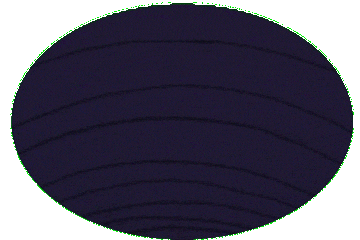United States House of Representatives
The United States House of Representatives is a chamber of the bicameral United States Congress; it is the lower house, with the U.S. Senate being the upper house. Together, the House and Senate have the authority under Article One of the U.S. Constitution in enumerated matters to pass or defeat federal legislation, known as bills. Those that are also passed by the Senate are sent to the president for signature or veto. The House's exclusive powers include initiating all revenue bills, impeaching federal officers, and electing the president if no candidate receives a majority of votes in the Electoral College. Members of the House serve a fixed term of two years, with each seat up for election before the start of the next Congress. Special elections may occur in the case of a vacancy. The House's composition was established by Article One of the United States Constitution. The House is composed of representatives who, pursuant to the Uniform Congressional District Act, sit in single member congressional districts allocated to each state on the basis of population as measured by the United States census, provided that each state gets at least one representative. Since its inception in 1789, all representatives have been directly elected. Although suffrage was initially limited, it gradually widened, particularly after the ratification of the Nineteenth Amendment and the civil rights movement. Since 1913, the number of voting representatives has been at 435 pursuant to the Apportionment Act of 1911. The Reapportionment Act of 1929 capped the size of the House at 435. The number was temporarily increased from 1959 until 1963 to 437 following the admissions of Alaska and Hawaii to the Union. Five non-voting delegates represent the District of Columbia and the U.S. territories of Guam, the U.S. Virgin Islands, the Commonwealth of the Northern Mariana Islands, and American Samoa. A non-voting resident commissioner, serving a four-year term, represents the Commonwealth of Puerto Rico. As of the 2020 census, the largest delegation was California, with 52 representatives. Six states have only one representative apiece: Alaska, Delaware, North Dakota, South Dakota, Vermont, and Wyoming. The House meets in the south wing of the United States Capitol. The rules of the House generally address a two-party system, with a majority party in government, and a minority party in opposition. The presiding officer is the speaker of the House, who is elected by the members thereof. Other floor leaders are chosen by the Democratic Caucus or the Republican Conference, depending on whichever party has the most voting members.
This article uses material from the Wikipedia article "United States House of Representatives", which is released under the Creative Commons Attribution-Share-Alike License 3.0.
References
| Title | Summary | |
|---|---|---|
| Testimony of Harry Nilsson before the United States House of Representatives | ... on the Judiciary of the United States House of ... | |












